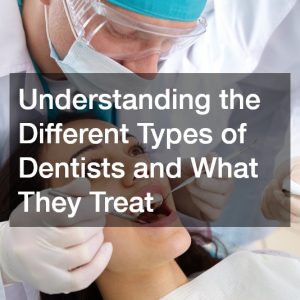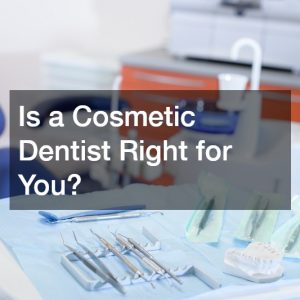The Importance of Regular Dental Cleanings for Overall Health
Understanding the importance of dental hygiene and its impact on overall health is essential. Many people view dental cleanings as merely cosmetic, but in reality, they are a vital component of preventive healthcare.
Regular cleanings not only enhance your smile but also help maintain systemic health and detect potential health issues early.
Why Regular Dental Cleaning Is Important
Preventing Tooth Decay
Dental cleanings help remove plaque and tartar that brushing and flossing alone can’t eliminate. This process significantly reduces the risk of cavities and tooth decay, keeping your teeth strong and healthy.
Gum Health and Gingivitis Prevention
Plaque buildup near the gumline can lead to gingivitis, the earliest stage of gum disease. Professional cleanings prevent this by keeping gums firm, pink, and free of inflammation.
Early Detection of Oral Health Issues
During cleanings, dental professionals often detect early signs of oral cancer, cavities, or other abnormalities. Catching these issues early means easier and less expensive treatments.
Maintaining Fresh Breath
Persistent bad breath, or halitosis, is often caused by bacteria lingering in the mouth. Regular cleanings eliminate these bacteria, ensuring fresher breath and improved confidence.
Overall Contribution to Systemic Health
Oral bacteria have been linked to various systemic conditions. Keeping your mouth clean helps reduce inflammation and bacterial spread, promoting better overall wellbeing.
How Often Should You Have a Dental Cleaning?
Standard Recommendations for Adults
Most adults benefit from professional dental cleanings every six months. This schedule helps maintain oral health and detect problems before they escalate.
Frequency for Children and Teens
Younger individuals, especially those with developing teeth, should also visit the dentist twice a year. Regular checkups support proper growth and hygiene habits.
Special Considerations for High-Risk Individuals
People with conditions such as diabetes, heart disease, or weakened immune systems may require more frequent visits due to increased susceptibility to oral infections.
Adapting Frequency Based on Oral Health Status
Your dentist may adjust your cleaning frequency depending on your oral health history, lifestyle, and personal risk factors.
Consulting with Your Dentist for Personalized Advice
No two mouths are the same. Your dentist can recommend an ideal schedule tailored to your specific needs and health goals.
What to Expect During a Dental Cleaning
Initial Examination and Assessment
The dental hygienist begins with a thorough exam to check for gum inflammation, cavities, or other issues before starting the cleaning process.
Removing Plaque and Tartar
Using specialized tools, plaque and hardened tartar are gently scraped from the teeth, particularly around the gumline and between teeth.
Polishing and Flossing
After tartar removal, your teeth are polished to smooth the surface and reduce future buildup, followed by professional flossing to remove any remaining debris.
Applying Fluoride Treatment
A fluoride application strengthens enamel and provides long-term protection against decay.
Education and Aftercare Tips
Your hygienist may offer guidance on brushing techniques, flossing, and diet choices that support ongoing oral health.
Can Dental Cleanings Prevent Serious Health Issues?
Link Between Oral Health and Heart Disease
Studies suggest that gum disease may increase the risk of heart disease due to bacteria entering the bloodstream and contributing to arterial plaque buildup.
Impact on Diabetes Management
People with diabetes often experience gum inflammation more easily. Regular cleanings can help control oral bacteria, improving overall blood sugar management.
Prevention of Respiratory Infections
Oral bacteria can be inhaled into the lungs, potentially leading to infections such as pneumonia. Cleanings help minimize this risk.
Associations with Pregnancy Health
Healthy gums reduce the risk of preterm birth and low birth weight, making dental hygiene especially important for expectant mothers.
Reducing Risk of Certain Cancers
Chronic inflammation from gum disease has been linked to a higher risk of cancers in the head, neck, and pancreas, highlighting the importance of oral care.
Are Dental Cleanings Covered by Insurance?
Understanding Dental Insurance Plans
Most dental insurance plans categorize cleanings as preventive care, meaning they are often fully or mostly covered.
Coverage for Preventive Services
Routine exams, cleanings, and X-rays typically fall under preventive benefits, requiring little to no out-of-pocket payment.
Navigating Out-of-Pocket Costs
For patients without full coverage, many dental offices offer payment plans or discounts for regular preventive visits.
Options for Those Without Insurance
Community health centers and dental schools often provide affordable cleaning services for those without insurance.
Maximizing Dental Benefits
Scheduling cleanings before the end of your benefit year ensures you take full advantage of your plan’s preventive coverage.
The Bigger Picture of Dental Cleanings
The significance of regular dental cleanings extends beyond achieving a bright smile. They serve as a preventive measure that supports your overall health, helping detect potential issues early and reducing the risk of systemic diseases. By prioritizing routine cleanings and maintaining daily oral care, individuals can enhance both their oral and general well-being for years to come.

Related Posts

Understanding the Different Types of Dentists and What They Treat
The landscape of modern healthcare is constantly shifting, but few fields have seen as much radical transformation as dentistry. What was once a profession focused primarily on extraction…

Is a Cosmetic Dentist Right for You?
Cosmetic dentistry has grown in popularity over the past few decades, becoming a major aspect of regular dental practices. It focuses primarily on improving the appearance of a…

What Qualifications and Trainings Does an Orthodontist Need?
Becoming an orthodontist requires a long, rigorous, and highly specialized educational path. This profession involves far more than simply applying braces or aligning teeth. Orthodontists diagnose, prevent, and…

Emergency Dentist When Should You Go See One?
Understanding when to seek immediate dental care can be crucial for your oral health. This article explores the common scenarios where visiting an emergency dentist is advisable. Recognizing…

What Is a Frenectomy and When Is It Needed?
A frenectomy is a minor surgical procedure designed to remove or modify the frenum, a small fold of tissue that connects the lips, cheeks, or tongue to the…

Why You Should Get Your Teeth Whitened at the Dentist
A bright, white smile can make a powerful first impression and significantly boost confidence. While daily brushing and flossing are essential for maintaining oral health, they may not…
Copyright © All Rights Reserved. Dentist Rock | Sitemap